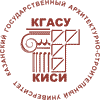Анкета автора(ов)
| Фамилия, имя, отчество, учёная степень, звание, должность. Полное и сокращённое наименование организации, адрес организации. | Сафин Р.С. – доктор педагогических наук, профессор E-mail: Этот e-mail адрес защищен от спам-ботов, для его просмотра у Вас должен быть включен Javascript Корчагин Е.А. – доктор педагогических наук, профессор Вильданов И.Э. – кандидат педагогических наук, доцент Абитов Р.Н. – кандидат педагогических наук, доцент Казанский государственный архитектурно-строительный университет Адрес организации: 420043, Россия, г. Казань, ул. Зелёная, д. 1 |
| Название статьи. | Профессиональное образование: ресурсы формирования личности компетентного строителя |
| Аннотация. | Профессиональное образование строителей рассматривается как единый целенаправленный процесс воспитания и обучения для формирования профессиональных компетенций, профессиональной культуры, обеспечивающих высокое качество трудовой деятельности выпускника, его нравственный облик, профессиональные мотивы, интересы, ценности. Формирование целостной личности будущего специалиста в процессе подготовки может быть достигнуто при реализации в единстве деятельностного, компетентностного и аксиологического подходов. |
| Ключевые слова. | Профессиональное образование, корпоративное образование, деятельностный, компетентный и аксиологический подходы, ценности строителей, единство профессионального обучения и профессионального воспитания. |
| First name, Middle name, Last name, Scientific degree, Scientific rank, Current position. Full and brief name of the organization, The organization address. | Safin R.S. – doctor of pedagogical sciences, professor E-mail: Этот e-mail адрес защищен от спам-ботов, для его просмотра у Вас должен быть включен Javascript Korchagin E.A. – doctor of pedagogical sciences, professor Vildanov I.E. – candidate of pedagogical sciences, associate professor Abitov R.N. – candidate of pedagogical sciences, associate professor Kazan State University of Architecture and Engineering The organization address: 420043, Russia, Kazan, Zelenaya st., 1 |
| Title of the article | Professional education: the resource of the formation of a competent civil engineer’s personality |
| Abstract. | In this article the education of a future civil engineer is regarded as an integral process of both teaching and upbringing. In the curriculum it is reflected in such parameters as knowledge, know-how, skills and student's attitude to the moral values. The upbringing of the corporate culture will only succeed if graduate's educational activities come along with the practical ones. In the course of this activities graduate could acquire necessary experience. The degree of participation is achieved by implementation of both practical and competent approaches of education process. Since moral values are not included into the curriculum, the actuality of the formation of these values is revealed. The importance of the values as a significant part of the professional activity of future workers and specialist of civil engineering is revealed. This requires an appeal to axiological approach of their professional study. To form an integral personality of the future specialist in the course of study practical, competent, axiological approaches are required. It is only possible with keeping methodical materials up to date, especially emphasizing the role of internship, taking into account that internship hours count was decreased by two times with the changing education standards towards the third generation. |
| Keywords. | Professional education, corporate training, activity approach to education, competent approach to education, moral values of civil engineers, the unity of professional teaching. |
| Для цитирования: | Сафин Р.С., Корчагин Е.А., Вильданов И.Э., Абитов Р.Н. Профессиональное образование: ресурсы формирования личности компетентного строителя // Известия КГАСУ. 2013. №2(24) С.348-354. |
| For citations: | Safin R.S., Korchagin E.A., Vildanov I.E., Abitov R.N. Professional education: the resource of the formation of a competent civil engineer’s personality // Izvestiya KGASU. 2013. №2(24) P.348-354. |














